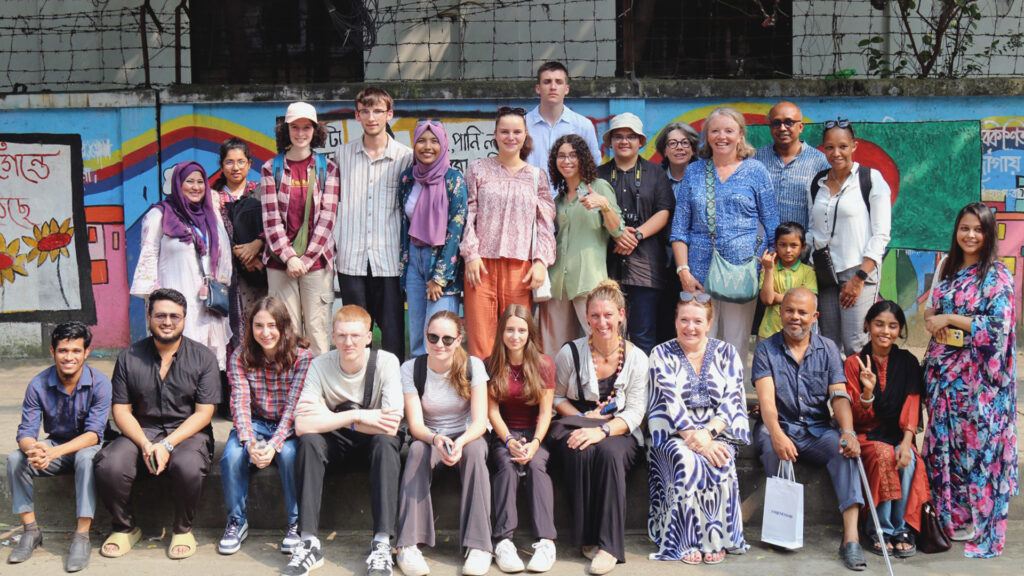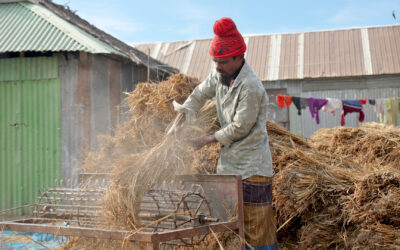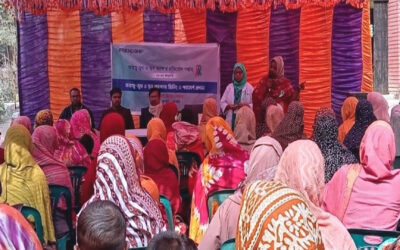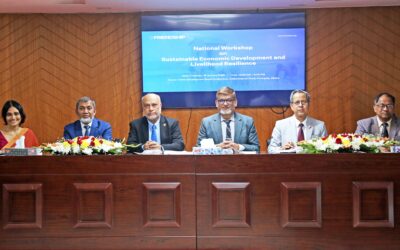Students from the Luxembourg Experience Life in Bangladesh’s Chars
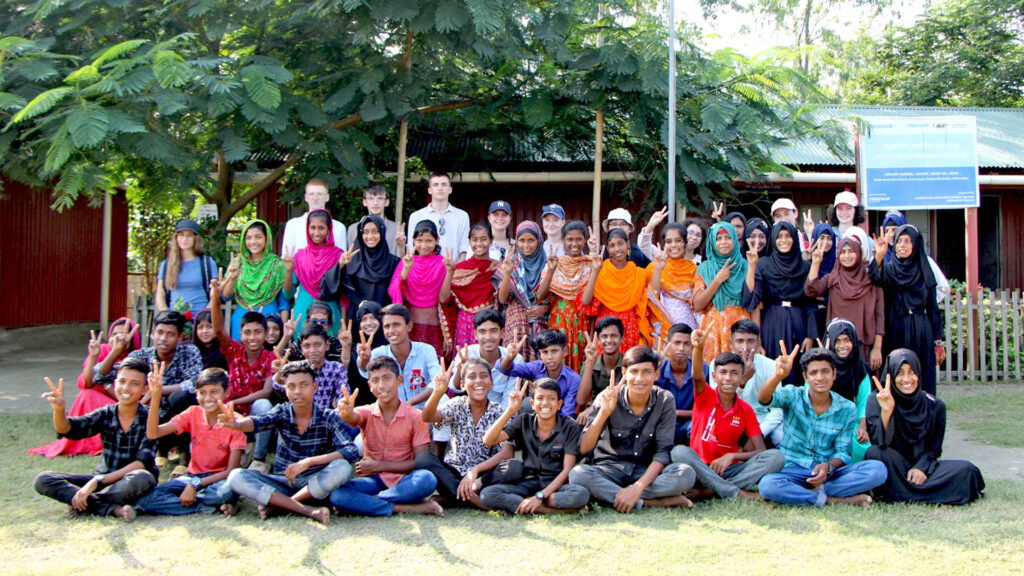
by Iffat Ara Sharmeen,
November 5, 2024
A delegation of students and teachers from Luxembourg recently experienced a new Bangladesh along with different working areas of Friendship as part of the organisation’s Inter-School Connectivity Project (ISCP).
Education for children in the riverine char islands seemed nearly impossible due to natural disasters and connectivity issues in these remote areas. Friendship’s education programmes have been helping these children get the same education and career opportunities as mainland children for almost two decades. As part of this programme facilitated by Friendship Luxembourg, a delegation of students and teachers from Luxembourg visited Dhaka and toured Friendship’s working areas including its schools. The week-long initiative was organised to enhance regional, educational, and cultural cooperation between the youth of Luxembourg and Bangladesh’s remote char islands.
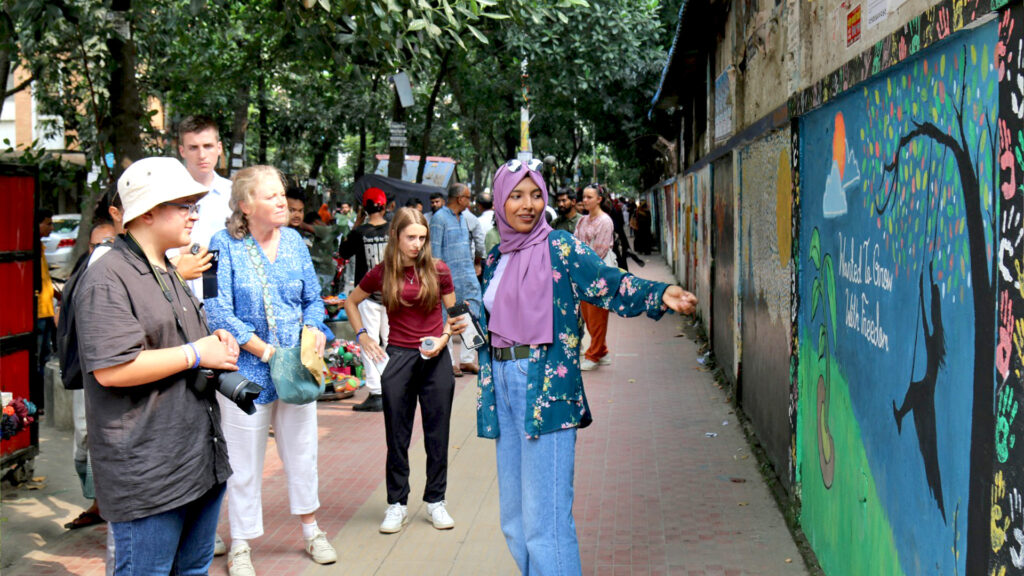
A Day in the Newly Adorned Dhaka
Three teachers and ten students landed in Dhaka on 24 October, accompanied by Esméralda Chupin from the Inter-School Connectivity Project, Friendship Luxembourg. Upon arrival, they were received and greeted by Friendship Bangladesh staff along with student coordinators from various universities who led the July Revolution. The student coordinators shared a brief insight into the revolution and its rationale with the Luxembourg students.
The coordinators also toured the Luxembourg students around Hatirjheel and Uttara, especially around Brac University and East West University, where much of the student demonstration occurred. The students from Luxembourg were fascinated that Bangladeshi students their age from all walks of life, i.e. their South Asian counterparts, could pull off such a countrywide revolution. The students enjoyed the messages, aspirations, and thoughts of these youth changemakers etched into the paintings and murals strewn around Dhaka.
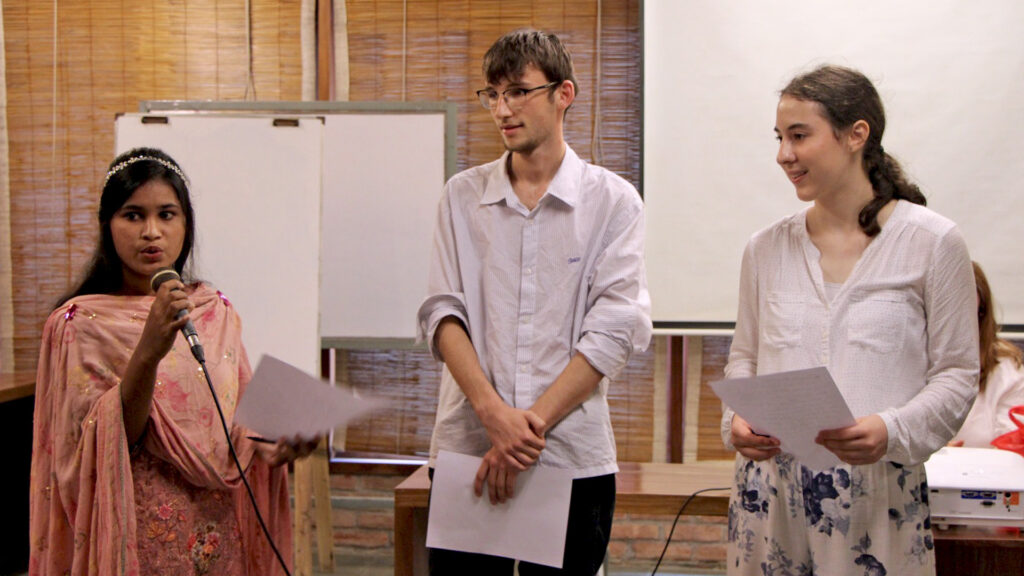
From Porar Char to Friendship Centre Gaibandha
After a colourful tour of Dhaka, the Luxembourg students got to experience the rural side of Bangladesh through the next few days, starting with meeting some Friendship Flood Volunteers at Porar Char, where students witnessed demonstrations of rescue activities and visited the plinth nearby. Later on, the team visited the EFH floating hospital, which provides healthcare services to rural patients. Along with observing the hospital activities, the students also heard first-hand experiences of when calamities hit the char islands. During this visit, the Luxembourg students were given a traditional Bengali experience by staying and dining in the houseboat adjacent to the floating hospital.
At the Friendship Centre, students also took part in an interactive workshop on some Code of Ethics values inculcated by Friendship, namely dignity, confidence, commitment, rights, compassion, courage, and justice. Friendship School students along with the Luxembourg delegate of students shared and wrote down each of their thoughts on each value into diagrams and discussed their perspectives behind it.
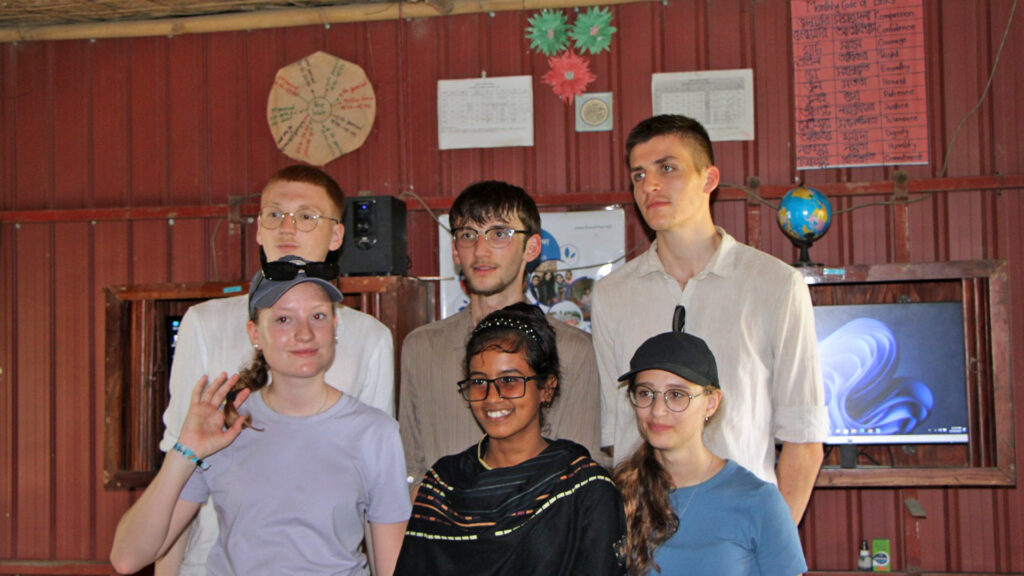
The students brainstormed on climate change and its impact on European regions and South Asian regions. This insightful exercise taught students the importance of resilience, allowing them to empathise with each other’s needs and dreams despite their diverse backgrounds, and reflect upon humanity shared by us all.
Trip to Friendship Schools and Other Programmes
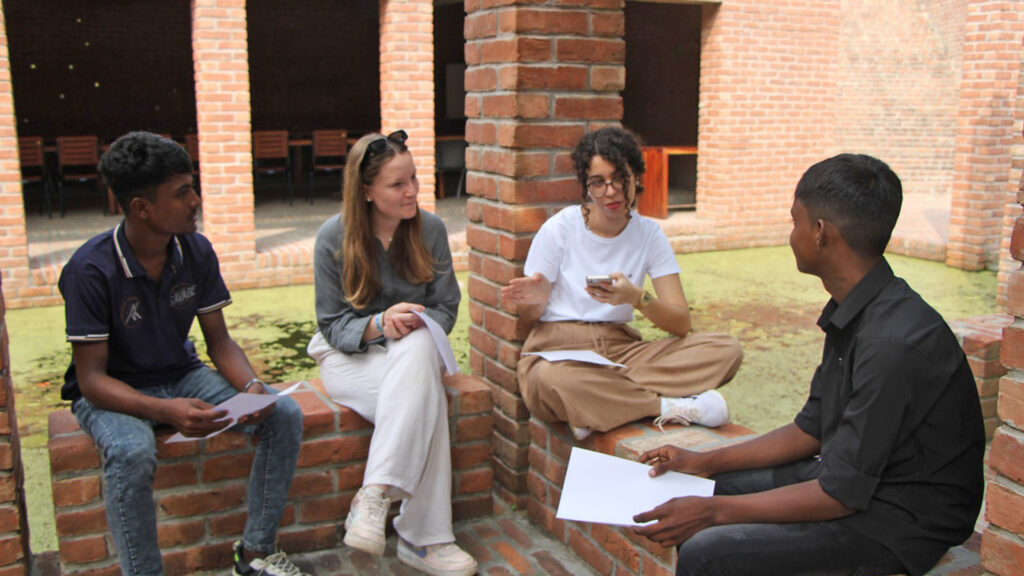
In the next few days, the Luxembourg students found themselves in the heart of many programmes led by Friendship. At Char Khamar Bashpata in Chilmari, Kurigram, the students observed inclusive citizenship programmes, such as the legal information booths and group sessions. They also observed the various primary healthcare and family planning initiatives led by Friendship in the region, a stark contrast to the healthcare facilities in their own country. Students observed the impact of climate change, and how impermanence shapes the lives and livelihoods of the char communities, including their education opportunities.
The Luxembourg delegate was warmly received by their Friendship School peers in Char Khamar Bashpata and Char Batikamari. Both primary and secondary school students interacted with them and described their daily activities. Friendship School students showed them around and performed recitals.
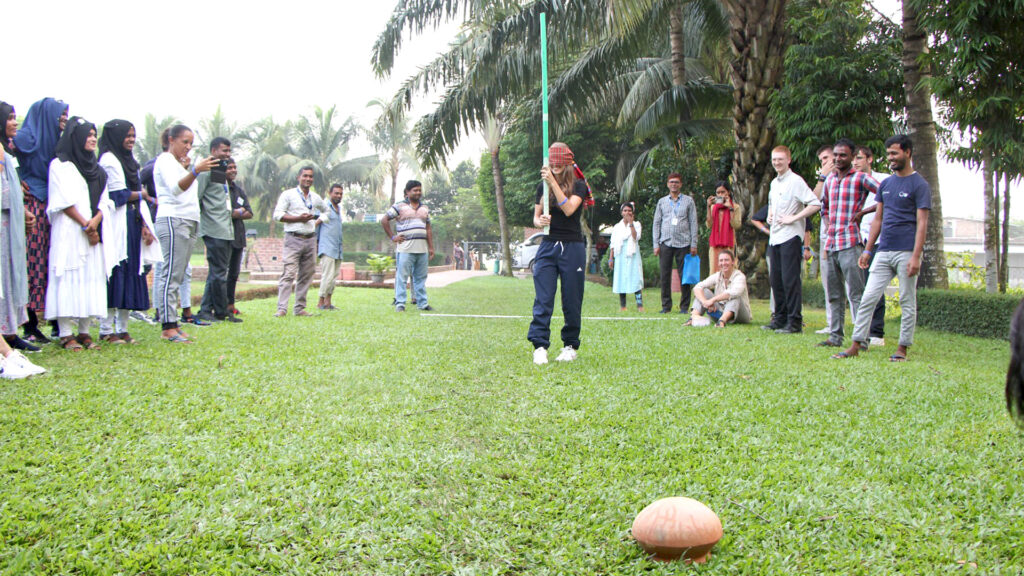
Apart from visiting different programme activities in chars, both groups of students enjoyed participating in traditional Bengali games. To celebrate their competitive spirit, prizes were also handed over to winners. Games such as dart throwing and ‘haribhanga’ (blindfolded pot breaking) were an instant hit. Such interactive activities helped students from different backgrounds who do not share the same culture or language understand and respect each other through sportsmanship.
